
Discovering Balti: Moldova's Northern Gem
Nestled in the northern reaches of Moldova, Balti is a city that offers a blend of rich history, vibrant culture, and scenic beauty. Known as the 'Northern Capital' of Moldova, Balti serves as a vital economic and cultural hub, making it a fascinating stop for travelers seeking to explore beyond the usual tourist trails. Balti's historical significance is palpable as you wander through its streets adorned with Soviet-era architecture and ancient churches. The central square, Piața Vasile Alecsandri, is a must-visit, offering a perfect blend of modern amenities and historical landmarks. Here, you can enjoy a leisurely afternoon in one of the many cafes or take a stroll in the nearby parks. Nature enthusiasts will find solace in the nearby Raut River and the lush green parks that provide a serene escape from the city's bustle. For a deeper dive into the local culture, visit the Balti National Theatre or the History and Ethnography Museum, where you can immerse yourself in the rich traditions and history of this unique region.
Local tips in Balti
- Visit Piața Vasile Alecsandri for a blend of modern and historical experiences.
- Explore the Raut River for a peaceful nature retreat.
- Check out the Balti National Theatre for a taste of local culture.
- Don't miss the History and Ethnography Museum to understand the region's rich past.
- Enjoy local cuisine at one of the traditional Moldovan restaurants in the city center.
Discovering Balti: Moldova's Northern Gem
Nestled in the northern reaches of Moldova, Balti is a city that offers a blend of rich history, vibrant culture, and scenic beauty. Known as the 'Northern Capital' of Moldova, Balti serves as a vital economic and cultural hub, making it a fascinating stop for travelers seeking to explore beyond the usual tourist trails. Balti's historical significance is palpable as you wander through its streets adorned with Soviet-era architecture and ancient churches. The central square, Piața Vasile Alecsandri, is a must-visit, offering a perfect blend of modern amenities and historical landmarks. Here, you can enjoy a leisurely afternoon in one of the many cafes or take a stroll in the nearby parks. Nature enthusiasts will find solace in the nearby Raut River and the lush green parks that provide a serene escape from the city's bustle. For a deeper dive into the local culture, visit the Balti National Theatre or the History and Ethnography Museum, where you can immerse yourself in the rich traditions and history of this unique region.
When is the best time to go to Balti?
Iconic landmarks you can’t miss
Dendrariu Park
Discover tranquility in Chișinău's Dendrariu Park: a vast green space with diverse flora, serene lakes, and a peaceful escape from city life.
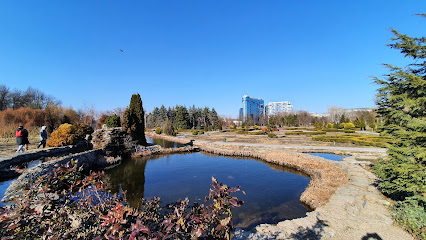
OrheiLand
Experience thrilling rides, cultural exhibits, and family fun at OrheiLand, Moldova's largest amusement park in the heart of Orhei.
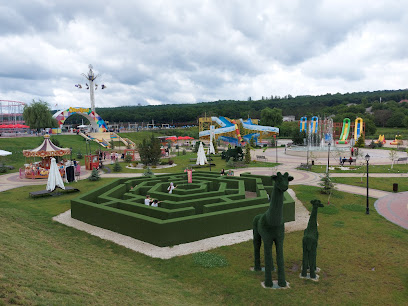
The Triumphal Arch
Visit Chișinău's Triumphal Arch, a symbol of victory and a gateway to exploring Moldova's rich history and neoclassical architecture.

Soroca Fortress
Explore Moldova's medieval history at the well-preserved Soroca Fortress, offering stunning views and a glimpse into the past.
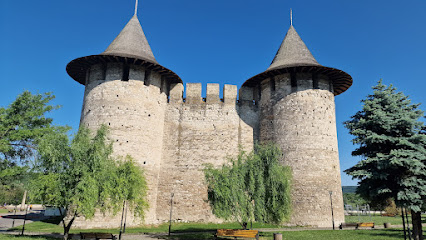
Eternity Memorial Complex
A solemn and significant war memorial in Chișinău, honoring the fallen soldiers of World War II and offering a place for quiet reflection.
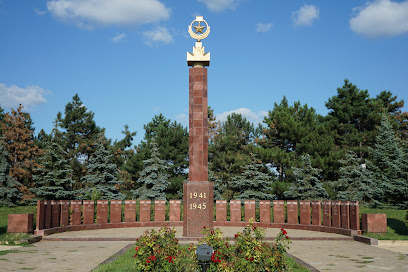
Castel Mimi
Discover Moldova's winemaking heritage at Castel Mimi, a beautifully restored castle offering tours, tastings, and cultural experiences.
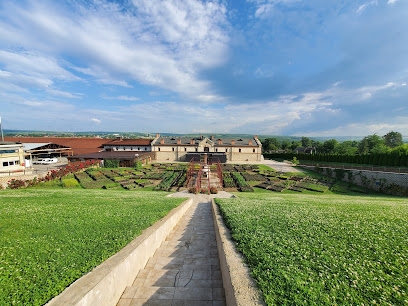
Stephen the Great Monument
Honoring Moldova's national hero, Stephen the Great, this iconic monument stands as a symbol of resilience and cultural pride in Chișinău.
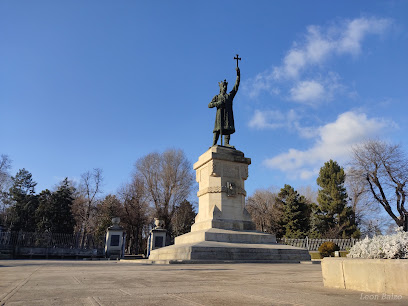
Cascade Stairs
Discover Chișinău's iconic Cascade Stairs: A blend of history, stunning views, and vibrant culture in the heart of Moldova.
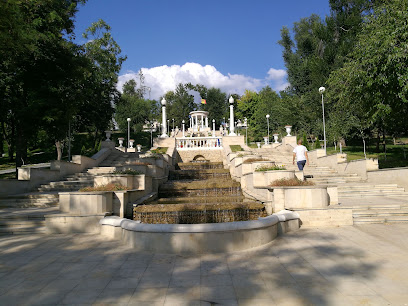
Curchi Monastery
Discover Curchi Monastery: A serene Moldovan treasure with stunning architecture and a rich spiritual history, nestled in the picturesque Vatici Valley.
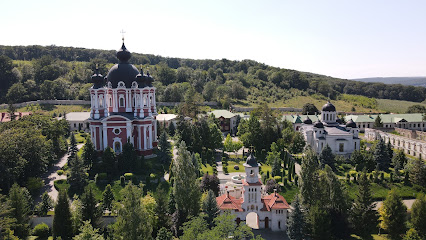
Vasile Lupu monument
Discover the Vasile Lupu Monument in Orhei, Moldova, a cultural gem honoring a pivotal historical figure amidst serene surroundings.
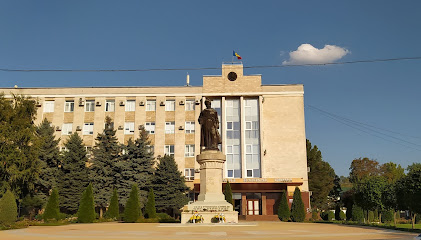
Suvorov Monument
Iconic monument in Tiraspol honoring Alexander Suvorov, founder of the city and a celebrated Russian military leader.
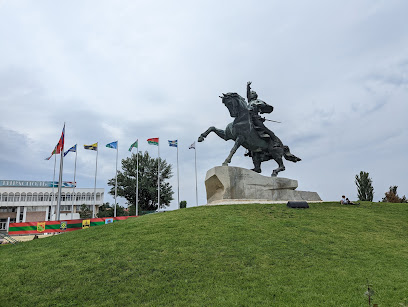
Tighina Fortress
Explore Tighina Fortress in Bender, Moldova: a historic landmark with stunning architecture, rich history, and panoramic views of the Dniester River.
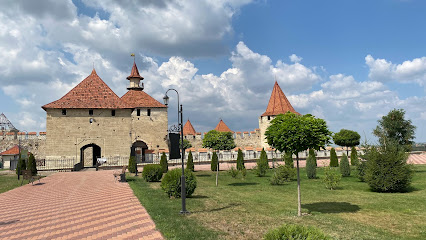
Oliva
Experience authentic Italian cuisine in the heart of Bălți, Moldova, with a diverse menu and cozy atmosphere.
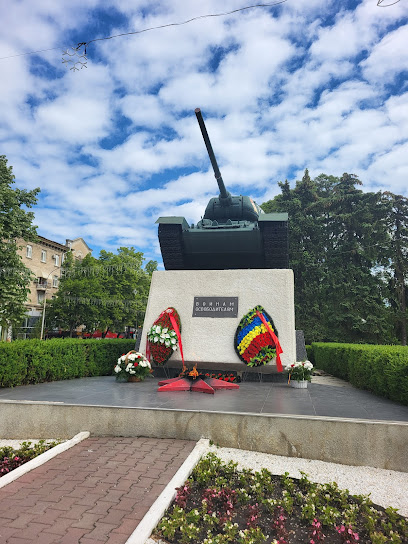
Candle of Gratitude
A towering monument in Soroca, Moldova, honoring the nation's culture and those who preserved it, with breathtaking views of the Dniester.
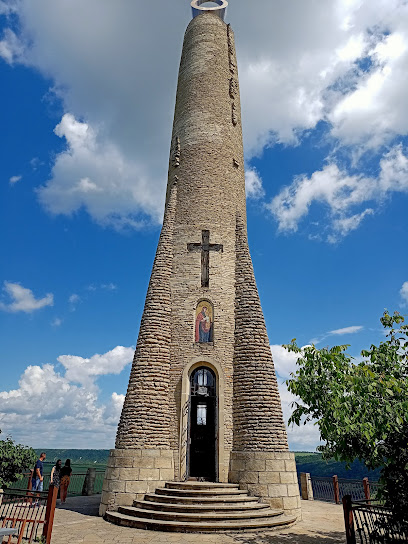
Tipova Monastery
Explore Moldova's ancient Tipova Monastery: a stunning cave complex steeped in history, legend, and breathtaking natural beauty along the Dniester River.
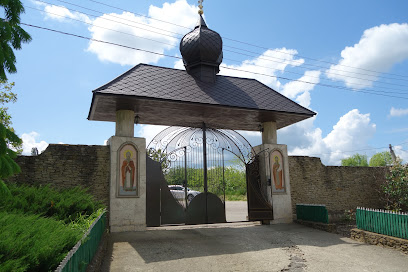
Unmissable attractions to see
Rose Valley Park
Explore the enchanting Rose Valley Park in Chișinău, where vibrant flowers and serene landscapes create a perfect retreat for nature lovers.
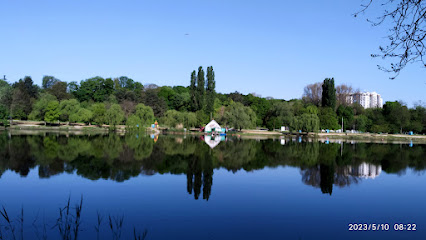
Mihai Volontir Central Park
Experience the lush greenery and vibrant atmosphere of Mihai Volontir Central Park, a serene retreat in the heart of Bălți, Moldova.
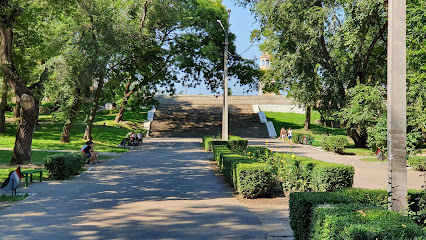
Țaul Park
Explore the stunning natural beauty and wildlife of Ăaul Park, Moldova's premier national park for outdoor enthusiasts and nature lovers.
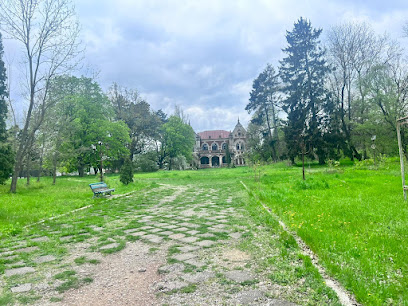
Bison Reserve
Discover the Bison Reserve in Moldova, a wildlife park dedicated to the majestic European bison and their natural habitat.
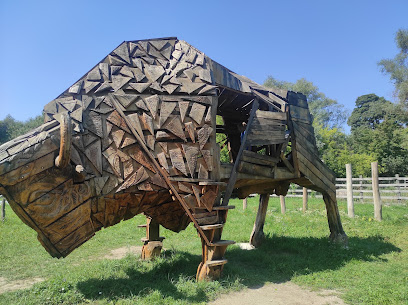
Crama Mircesti
Discover the enchanting Crama Mircești, where Moldovan wine meets breathtaking views and warm hospitality in the heart of Moldova.
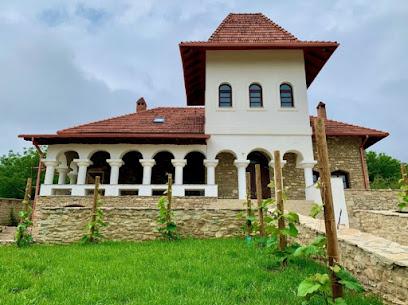
Muzeul de Istorie si Etnografie
Explore the captivating history and rich ethnography of Moldova at Muzeul de Istorie si Etnografie in Bălți.
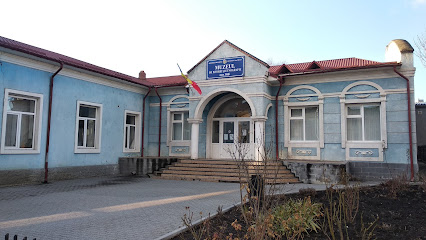
Muzeul Etnografic Sângerei
Explore the vibrant culture and traditions of Moldova at Muzeul Etnografic Sângerei, a captivating journey through the region's rich heritage.
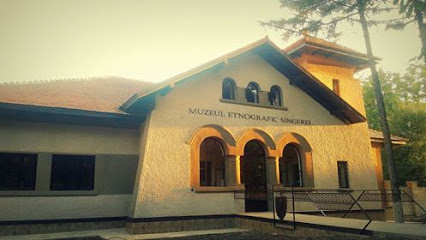
Перекресток
Experience the natural beauty and rich culture of Перекресток, a captivating tourist attraction in Moldova, perfect for exploration and relaxation.
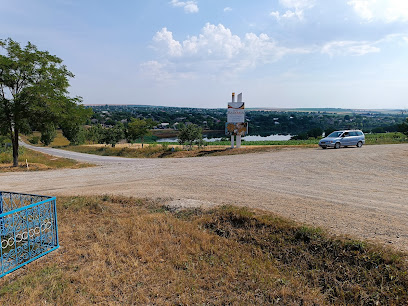
Домик охотников и рыбоков
Experience the beauty of nature at the Hunting and Fishing Lodge in Bălți, Moldova, a perfect destination for outdoor enthusiasts and tranquility seekers.
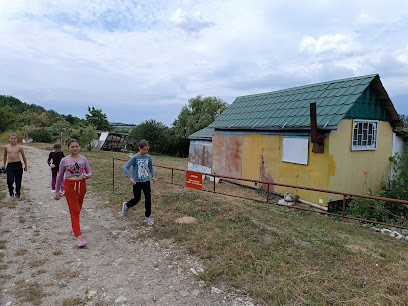
Essential places to dine
Oliva
Experience authentic Italian flavors at Oliva in Bălți – where culinary tradition meets modern hospitality.
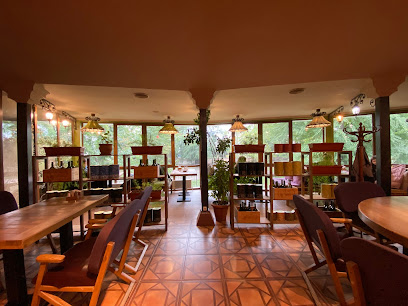
Beermaster Pub
Discover the heart of Bălți's beer culture at Beermaster Pub—where great brews meet delicious Moldovan cuisine.
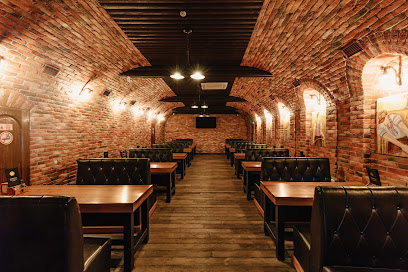
Traktir
Discover authentic Moldovan cuisine at Traktir in Bălți—where tradition meets flavor in a cozy atmosphere.
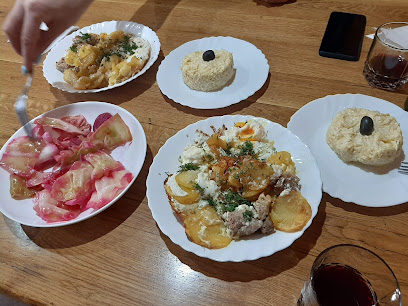
La Pestisor
Experience authentic Moldovan cuisine at La Pestisor in Bălți – where tradition meets flavor in every dish.
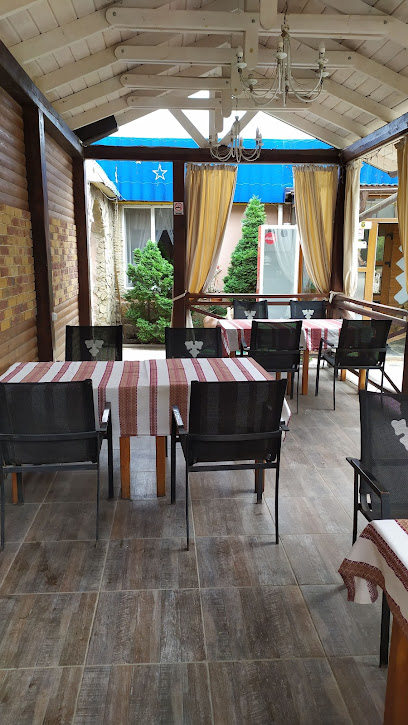
Wine House
Experience the authentic flavors of Moldova at Wine House in Bălți – where tradition meets taste in every dish.
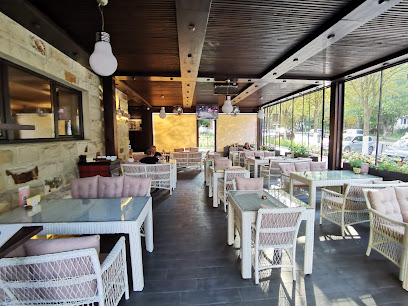
Noroc
Experience authentic Moldovan cuisine at Noroc in Bălți – where tradition meets taste in a cozy atmosphere.
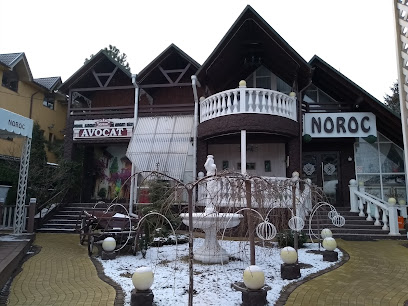
Vstrecea
Discover authentic Moldovan cuisine at Vstrecea in Bălți - where tradition meets flavor in every bite.
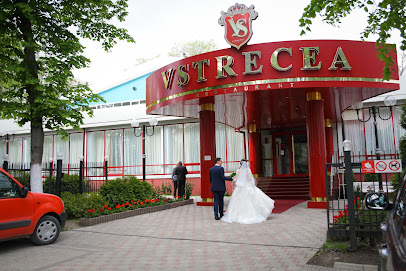
Oscar
Experience exquisite dining at Oscar in Bălți, Moldova - where local flavors meet international cuisine in an elegant setting.
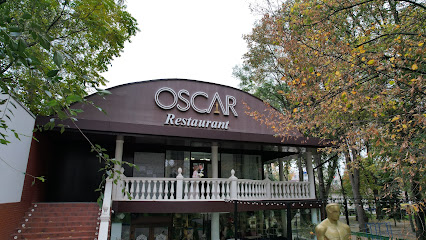
Mr. Brown
Experience the best of Moldovan cuisine at Mr. Brown in Bălți - where tradition meets taste in a cozy setting.
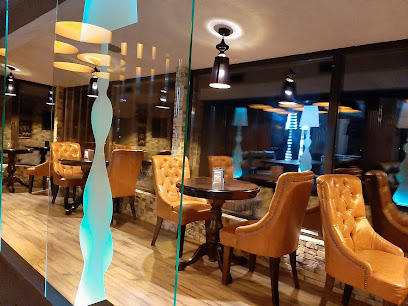
Aurica
Discover Aurica in Bălți - where local flavors meet exceptional dining in a cozy atmosphere.
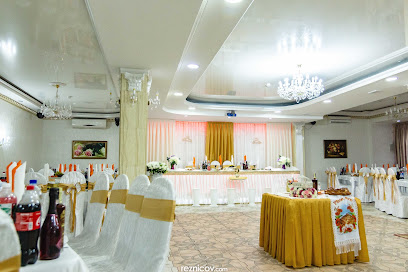
Loft Burger Bar
Experience the vibrant culinary scene at Loft Burger Bar in Bălți – where every bite is a celebration of taste!
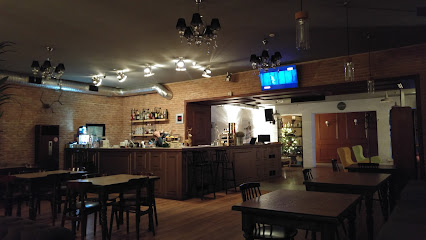
DiVino
Discover the flavors of Moldova at DiVino in Bălți - where traditional meets contemporary dining in a cozy atmosphere.
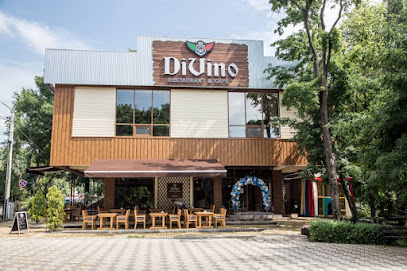
Vatra Neamului
Discover authentic Moldovan flavors at Vatra Neamului in Bălți – where tradition meets taste in every bite.
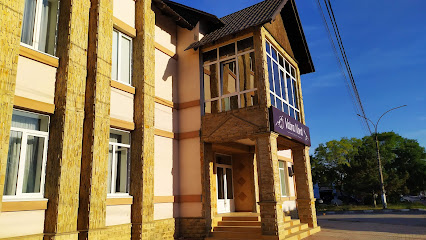
Moldova
Experience authentic Moldovan cuisine in Bălți's vibrant dining scene, where tradition meets modernity for an unforgettable meal.
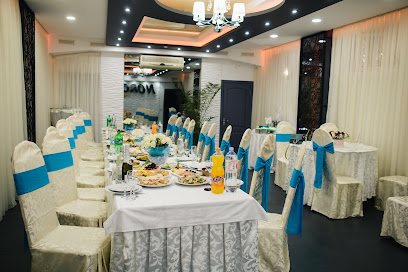
Nistru
Experience authentic Moldovan flavors at Nistru – a charming Romanian restaurant in Bălți known for its delicious traditional dishes.
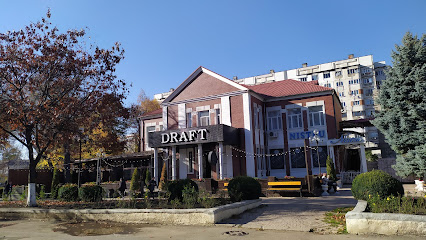
Markets, malls and hidden boutiques
BUM
Explore BUM Shopping Mall in Bălți for an unforgettable shopping experience filled with local flavor and modern retail delights.
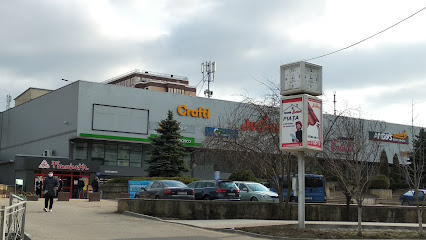
Econom
Explore Econom in Bălți, Moldova: A treasure trove of glassware, toys, and unique souvenirs for every traveler.
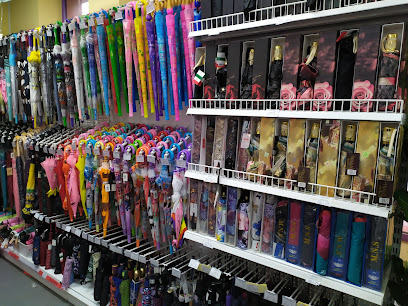
Prețuri pentru tine - Bălți
Explore the stylish and affordable clothing options at Prețuri pentru tine in Bălți, Moldova – a fashion paradise for every traveler.
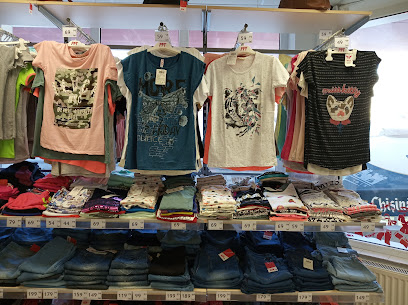
Oodji
Explore the latest fashion trends at Oodji, a stylish clothing store in Bălți offering a wide range of affordable apparel for every occasion.
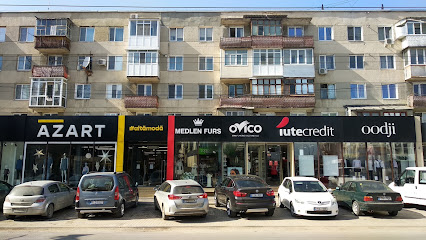
Top Shop
Discover exquisite furniture and local craftsmanship at Top Shop in Bălți, Moldova - a must-visit for design enthusiasts.
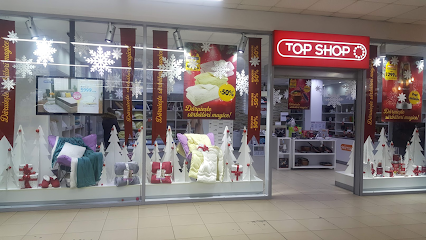
Ladi
Discover the latest women's fashion trends at Ladi, Bălți's premier clothing store, known for its stylish and quality apparel.
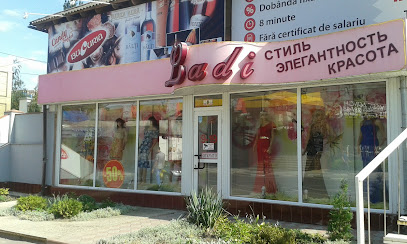
Shock
Explore Shock in Bălți - your go-to destination for trendy shoes and stylish apparel in Moldova, where fashion meets quality.
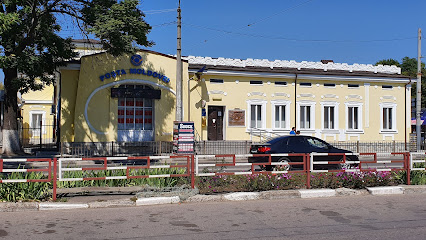
Victoria Market Bălți
Experience the vibrant local culture and taste the authentic flavors at Victoria Market Bălți, the heart of Moldovan shopping and cuisine.
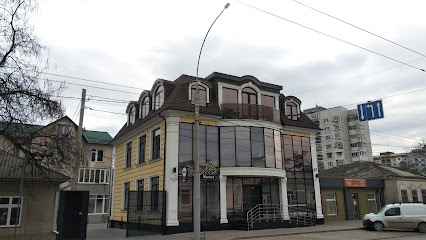
Tabaks.md
Discover a rich selection of tobacco and hookah products at Tabaks.md, the ultimate destination for tobacco enthusiasts in Bălți, Moldova.
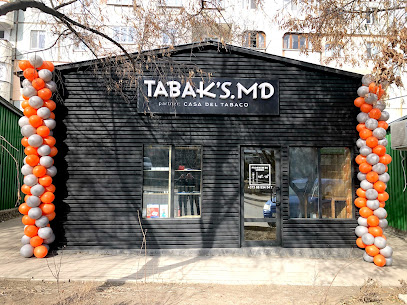
Infinity-Cosmetics
Infinity-Cosmetics in Bălți offers a diverse selection of beauty products, blending local charm with international flair for all cosmetic lovers.
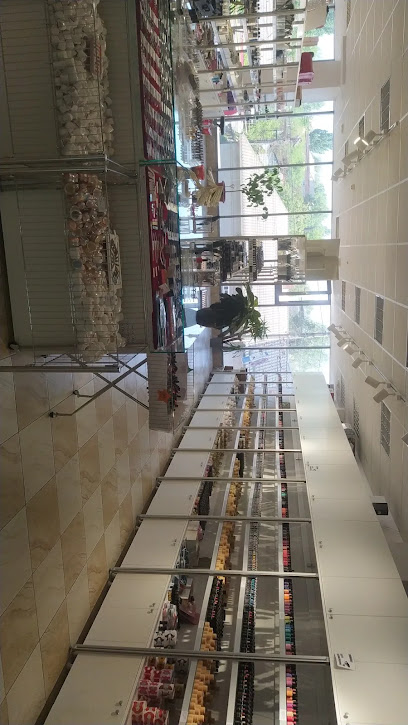
Casa Muzicii Balti
Explore Casa Muzicii Balti - a musical instrument haven in Moldova, showcasing a rich collection of traditional and modern instruments.
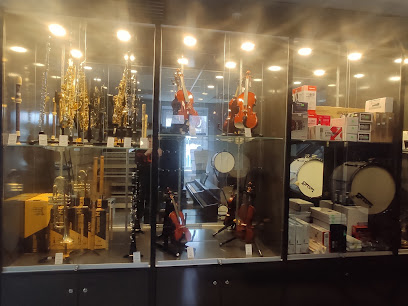
North Bussiness & Shopping
Explore North Business & Shopping in Bălți for a delightful mix of shopping, dining, and family fun in a lively atmosphere.
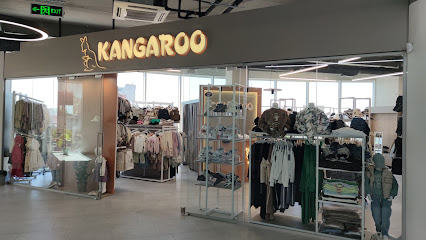
Atelier Arina Spătaru
Discover the essence of Moldovan fashion at Atelier Arina Spătaru, where local craftsmanship meets contemporary style in Bălți.
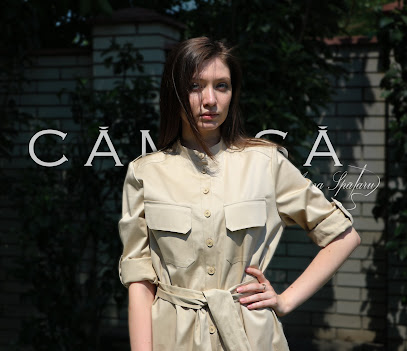
Moldova Mobile Shop
Explore the latest in mobile technology at Moldova Mobile Shop in Bălți, your go-to destination for gadgets and accessories.
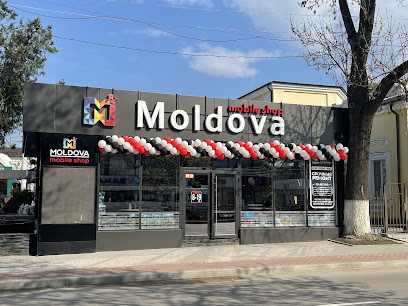
Black White
Explore the latest trends in clothing at Black White, the premier fashion destination in Bălți, Moldova.

Essential bars & hidden hideouts
Beermaster Pub
Discover the vibrant atmosphere and diverse beer selection at Beermaster Pub in Bălți, Moldova - a must-visit for every beer lover.
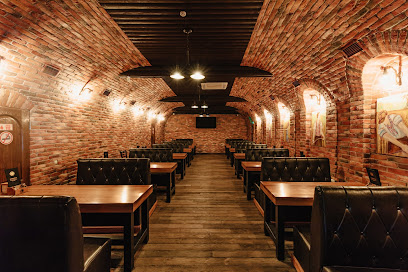
Graff Cafe
Discover the unique blend of café culture, dining, and nightlife at Graff Cafe in Bălți, where every visit is a celebration.
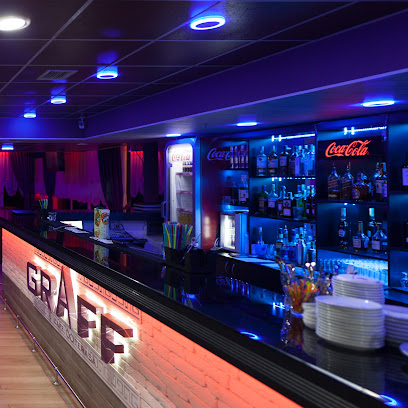
Mon’ro Restaurant & Karaoke
Experience the lively atmosphere of Mon’ro Restaurant & Karaoke in Bălți, where delicious cuisine meets incredible entertainment for an unforgettable night out.
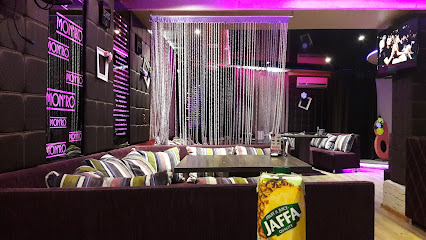
Drive Pub
Discover the lively atmosphere of Drive Pub in Bălți, where great drinks meet delicious snacks and a vibrant local vibe.
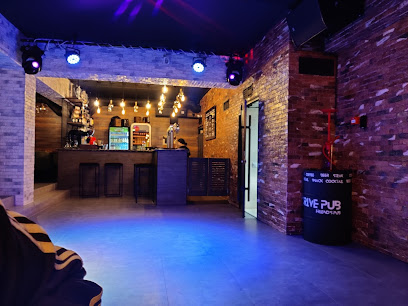
BEERMASTER BREWERY
Experience the essence of Moldovan brewing at BEERMASTER BREWERY - a must-visit brewpub in Bălți with handcrafted beers and delicious local cuisine.
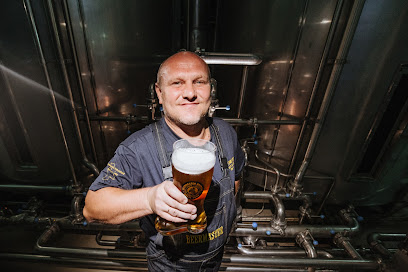
Sweet Life
Experience the vibrant nightlife at Sweet Life, Bălți's premier cocktail bar, offering unique drinks and a lively atmosphere.
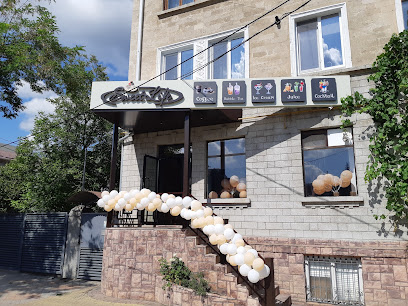
IKRA Restaurant & Club
Discover the excitement of IKRA Restaurant & Club in Bălți, Moldova, where vibrant nightlife meets delicious local cuisine.
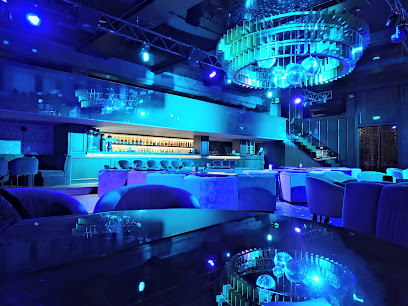
Taqueria
Experience the vibrant flavors of Mexico at Taqueria, Bălți's ultimate destination for authentic tacos and festive atmosphere.
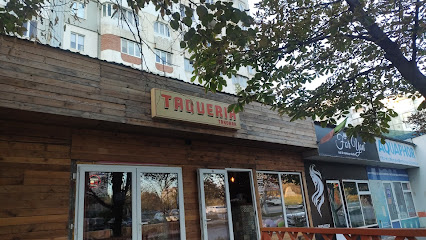
SPORT PUB
Discover the lively spirit of Bălți at SPORT PUB – a must-visit bar for tourists seeking great drinks and local culture.
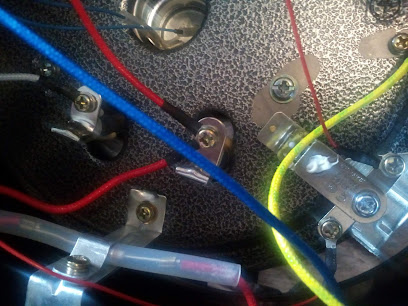
Randevu
Experience the warmth of Bălți at Randevu, where delightful drinks and a welcoming atmosphere create unforgettable moments.
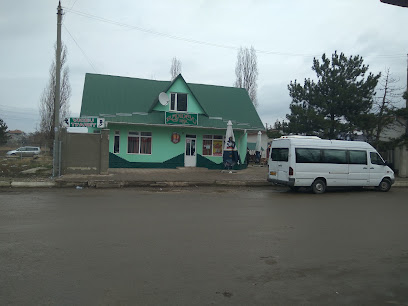
Magnolia
Discover Magnolia, a vibrant bar in Bălți, where local charm meets delicious drinks and a welcoming atmosphere.
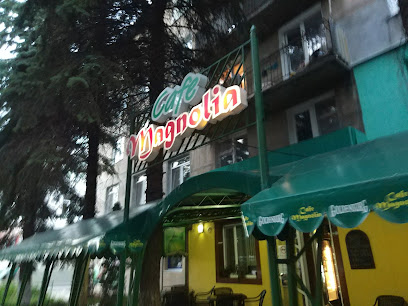
болгарская 96
Experience the vibrant nightlife of Bălți at болгарская 96, a lively bar offering local drinks and a welcoming atmosphere.
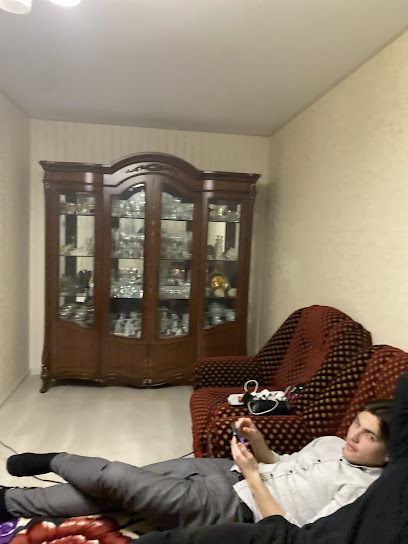
Lounge Cafe Pushkin
Experience the warmth of Bălți at Lounge Cafe Pushkin, a cozy bar offering delightful beverages and a taste of local culture.
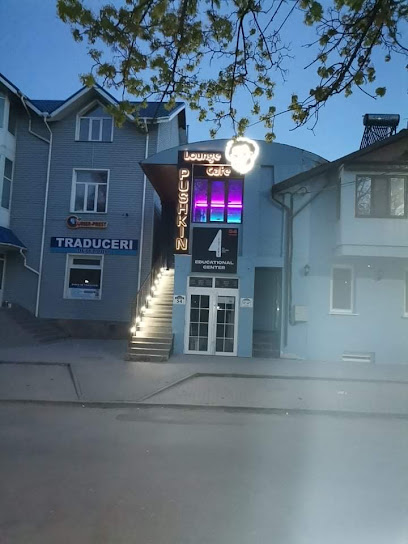
Restaurant Provance
Experience the flavors of Moldova at Restaurant Provance, a cozy bar in Bălți known for its delicious cuisine and warm hospitality.
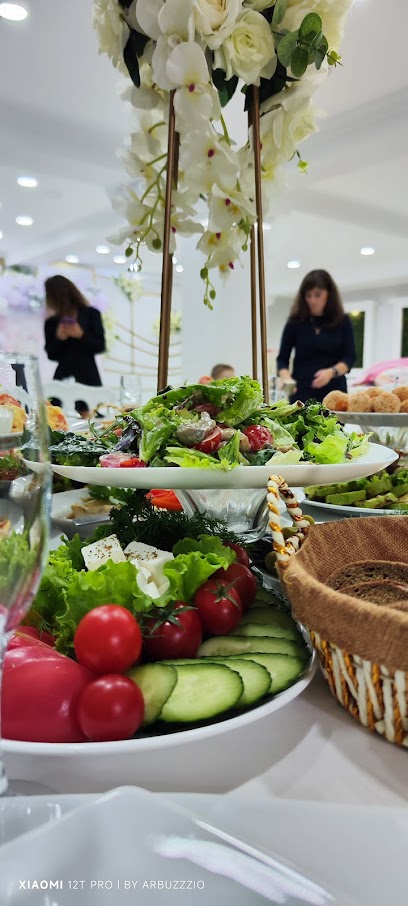
Local Phrases about Balti
-
- HelloСалют
[Salut] - GoodbyeLa revedere
[La revedere] - YesDa
[Da] - NoNu
[Nu] - Please/You're welcomeVă rog
[Va rog] - Thank youMulțumesc
[Multumesc] - Excuse me/SorryScuzați-mă
[Scuzati-ma] - How are you?Cum ești?
[Cum esti?] - Fine. And you?Bine. Și tu?
[Bine. Si tu?] - Do you speak English?Vorbiți engleză?
[Vorbiti engleza?] - I don't understandNu înțeleg
[Nu inteleg]
- HelloСалют
-
- I'd like to see the menu, pleaseAș dori să văd meniul, vă rog
[As dori sa vad meniul, va rog] - I don't eat meatNu mănânc carne
[Nu mananc carne] - Cheers!Noroc!
[Noroc!] - I would like to pay, pleaseAș dori să plătesc, vă rog
[As dori sa platesc, va rog]
- I'd like to see the menu, pleaseAș dori să văd meniul, vă rog
-
- Help!Ajutor!
[Ajutor!] - Go away!Du-te!
[Du-te!] - Call the Police!Sună la Poliție!
[Suna la Politie!] - Call a doctor!Sună un doctor!
[Suna un doctor!] - I'm lostM-am pierdut
[M-am pierdut] - I'm illSunt bolnav
[Sunt bolnav]
- Help!Ajutor!
-
- I'd like to buy...Aș dori să cumpăr...
[As dori sa cumpar...] - I'm just lookingDoar mă uit
[Doar ma uit] - How much is it?Cât costă?
[Cat costa?] - That's too expensiveEste prea scump
[Este prea scump] - Can you lower the price?Puteți să scădeți prețul?
[Puteti sa scadeti pretul?]
- I'd like to buy...Aș dori să cumpăr...
-
- What time is it?Cât este ceasul?
[Cat este ceasul?] - It's one o'clockEste ora unu
[Este ora unu] - Half past (10)Zece și jumătate
[Zece si jumatate] - MorningDimineața
[Dimineata] - AfternoonDupă-amiază
[Dupa-amiaza] - EveningSeara
[Seara] - YesterdayIeri
[Ieri] - TodayAstăzi
[Astazi] - TomorrowMâine
[Maine] - 1Unu
[Unu] - 2Doi
[Doi] - 3Trei
[Trei] - 4Patru
[Patru] - 5Cinci
[Cinci] - 6Șase
[Sase] - 7Șapte
[Sapte] - 8Opt
[Opt] - 9Nouă
[Noua] - 10Zece
[Zece]
- What time is it?Cât este ceasul?
-
- Where's a/the...?Unde este unul/singurul...?
[Unde este unul/singurul...?] - What's the address?Care este adresa?
[Care este adresa?] - Can you show me (on the map)?Puteți să-mi arătați (pe hartă)?
[Puteti sa-mi aratati (pe harta)?] - When's the next (bus)?Când este următorul (autobuz)?
[Cand este urmatorul (autobuz)?] - A ticket (to ....)Un bilet (către ....)
[Un bilet (catre ....)]
- Where's a/the...?Unde este unul/singurul...?
History of Balti
-
The area where Bălți is now located has been inhabited since ancient times. Archaeological findings suggest that early settlements existed here as far back as the Neolithic era. The city's name, Bălți, which means 'swamps' in Romanian, reflects the marshy lands that once dominated the landscape. It was first officially mentioned in historical documents in 1421, under the rule of the Moldavian Prince Alexander the Good.
-
During the 16th and 17th centuries, Bălți, like much of Moldova, fell under Ottoman influence. However, by the 18th century, the Russian Empire began to exert its control over the region. The Treaty of Bucharest in 1812 resulted in Bessarabia, including Bălți, being ceded to the Russian Empire. This period saw a significant influx of Russian and Ukrainian settlers, which influenced the cultural and architectural development of the city.
-
The 19th century was a period of significant economic growth for Bălți. The city became an important trade hub due to its strategic location. The construction of the railway in the late 19th century further boosted its economic status, facilitating the trade of agricultural products and livestock. This period also saw the establishment of various educational and cultural institutions.
-
Bălți endured significant hardships during World War II. The city was occupied by German and Romanian forces, leading to considerable destruction and loss of life. After the war, Bălți became part of the Moldavian SSR under Soviet control. During this period, the city was rebuilt and industrialized, with a focus on manufacturing and agriculture. The Soviet era also saw the development of cultural and scientific institutions in Bălți.
-
With the dissolution of the Soviet Union in 1991, Bălți became part of the newly independent Republic of Moldova. The transition to a market economy brought both challenges and opportunities. The city has since undergone significant changes, with efforts to modernize infrastructure and revitalize cultural heritage. Bălți remains a vital economic and cultural center in Moldova, known for its diverse population and rich history.
-
Today, Bălți is a vibrant city that celebrates its multicultural heritage. The city's architectural landscape is a blend of historical buildings and modern structures. Key cultural landmarks include the St. Nicholas Church, the Armenian Church, and the Vasile Alecsandri National Theatre. Bălți also hosts various cultural festivals and events, reflecting the diverse traditions of its residents. The city continues to be a hub of education, with institutions such as Alecu Russo University playing a significant role in regional development.
Balti Essentials
-
Bălți is located in the northern part of Moldova. The nearest international airport is Chișinău International Airport, approximately 150 kilometers away. From Chișinău, you can take a bus, minibus (marshrutka), or train to Bălți. The journey typically takes around 2.5 to 3 hours by road or rail. Taxis and private car services are also available for hire.
-
Bălți has a well-developed public transportation system including buses and minibuses (marshrutkas) that connect various parts of the city. Taxis are readily available and relatively affordable. For a more convenient option, consider renting a car to explore the city and surrounding regions at your own pace.
-
The official currency in Moldova is the Moldovan Leu (MDL). Credit cards are accepted in most hotels, restaurants, and larger shops in Bălți, but it is advisable to carry cash, especially when visiting smaller establishments. ATMs are widely available throughout the city for withdrawing cash.
-
Bălți is generally a safe city for tourists. However, like any travel destination, it is important to take standard precautions. Avoid walking alone at night in poorly lit areas and be mindful of your belongings in crowded places. Specific neighborhoods to be cautious in include the outskirts of the city where petty crimes are more common.
-
In case of emergency, dial 112 for immediate assistance. The local police station and medical facilities are available in Bălți. It is recommended to have travel insurance that covers medical emergencies. Pharmacies are plentiful in the city where you can purchase over-the-counter medications for minor health issues.
-
Fashion: Do dress modestly, especially when visiting religious sites. Avoid wearing overly revealing clothing. Religion: Do respect local customs and traditions, especially in religious settings. Public Transport: Do be respectful and give up your seat to elderly or disabled passengers. Don't eat or drink on public transport. Greetings: Do greet people with a handshake. A warm smile is also appreciated. Eating & Drinking: Do try local delicacies and accept food offerings graciously. Don’t refuse hospitality, as it is considered impolite.
-
To experience Bălți like a local, visit the central market where you can buy fresh produce and traditional Moldovan goods. Engage with locals, as they are often friendly and willing to share insights about the city's history and culture. Don't miss visiting the Cathedral of Saints Constantine and Helena and the Vasile Alecsandri National Theatre. For a unique experience, take a stroll along the Râșcani Park, offering a peaceful retreat in the heart of the city.
Nearby Cities to Balti
-
Things To Do in Orhei
-
Things To Do in Chișinău
-
Things To Do in Suceava
-
Things To Do in Chernivtsi
-
Things To Do in Tiraspol
-
Things To Do in Vinnytsia
-
Things To Do in Khmelnytskyi
-
Things To Do in Focsani
-
Things To Do in Ternopil
-
Things To Do in Ivano-Frankivsk
-
Things To Do in Sighisoara
-
Things To Do in Brasov
-
Things To Do in Baia Mare
-
Things To Do in Kropyvnytskyi
-
Things To Do in Cluj-Napoca











